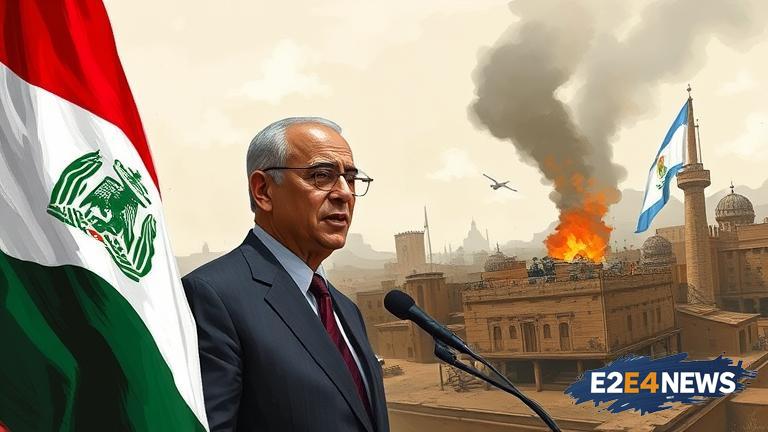In a recent statement, Egyptian President Abdel Fattah el-Sisi has strongly condemned the actions of Israel in the Gaza Strip, labeling them as genocide. This accusation has sent shockwaves throughout the international community, with many world leaders and organizations weighing in on the issue. The situation in Gaza has been a longstanding point of contention, with Israel and Palestine locked in a decades-long conflict. The Egyptian President’s words have been seen as a significant escalation of the rhetoric surrounding the crisis. El-Sisi’s statement was made during a meeting with foreign diplomats, where he emphasized the need for a peaceful resolution to the conflict. He also called for an end to the violence and the protection of civilian lives. The Israeli government has responded to the accusation, denying any wrongdoing and stating that their actions are necessary for national security. However, many human rights organizations and international leaders have expressed concern over the disproportionate use of force by Israel in Gaza. The United Nations has also been involved in efforts to broker a peace agreement, with Secretary-General Antonio Guterres calling for a ceasefire and the protection of civilians. The conflict in Gaza has resulted in the loss of thousands of lives, with many more injured and displaced. The humanitarian situation in the region is dire, with access to basic necessities like food, water, and healthcare severely limited. The international community has been criticized for its response to the crisis, with many arguing that more needs to be done to address the root causes of the conflict. The Egyptian President’s accusation of genocide has sparked a heated debate, with some arguing that it is a accurate description of the situation, while others claim it is an exaggeration. The use of the term genocide is highly charged, implying a deliberate and systematic attempt to destroy a particular group of people. The Israeli government has faced criticism for its treatment of Palestinians, with many accusing it of apartheid and human rights abuses. The conflict in Gaza is complex and multifaceted, with deep historical and cultural roots. The situation is further complicated by the involvement of other regional and international actors, including the United States, Iran, and Turkey. As the situation continues to deteriorate, there are fears of a wider regional conflict, with potentially catastrophic consequences. The Egyptian President’s statement has been seen as a call to action, with many hoping that it will prompt a renewed effort to find a peaceful solution to the crisis. However, the path forward is uncertain, and it remains to be seen whether the international community will be able to come together to address the situation. The conflict in Gaza is a stark reminder of the need for diplomacy and international cooperation in resolving complex and deeply entrenched conflicts. As the world watches the situation unfold, there is a growing sense of urgency and concern for the future of the region. The Egyptian President’s accusation of genocide has brought the issue back into the spotlight, and it remains to be seen how the international community will respond. In the meantime, the people of Gaza continue to suffer, caught in the midst of a conflict that seems to have no end in sight. The need for a peaceful and lasting solution has never been more pressing, and it is up to the international community to come together to make it a reality.





